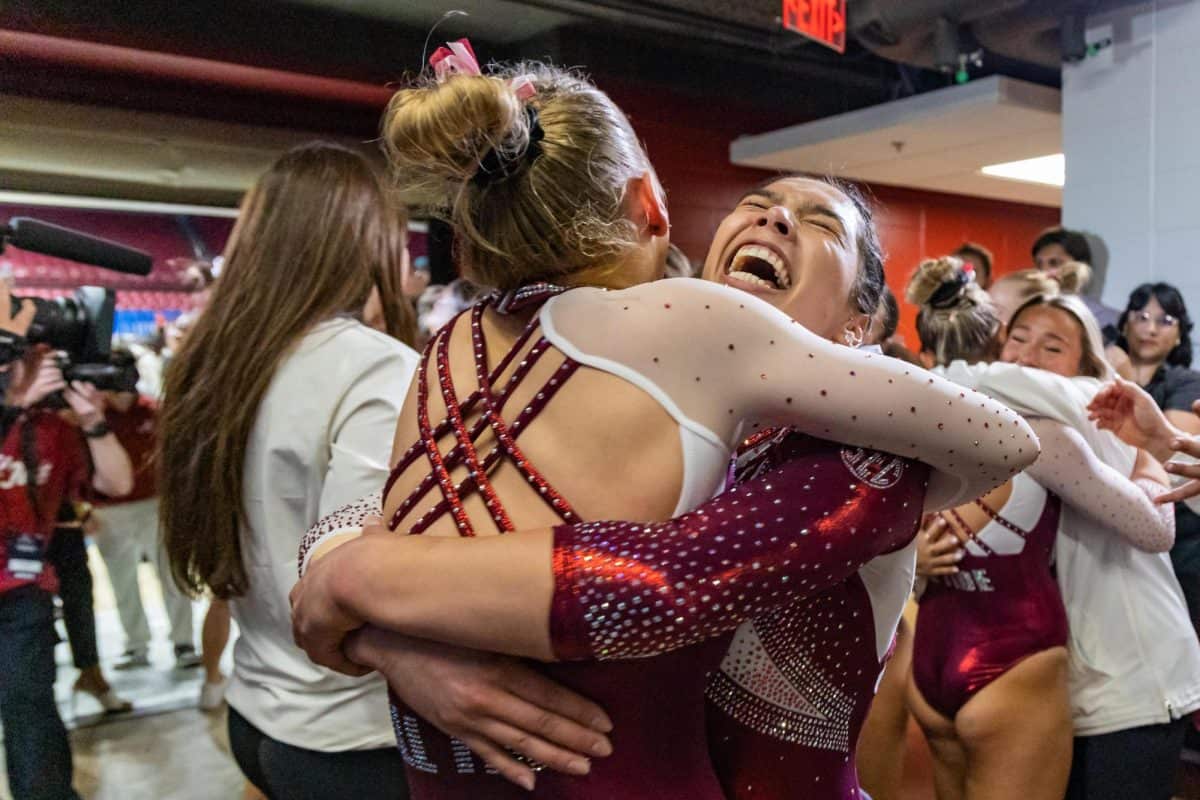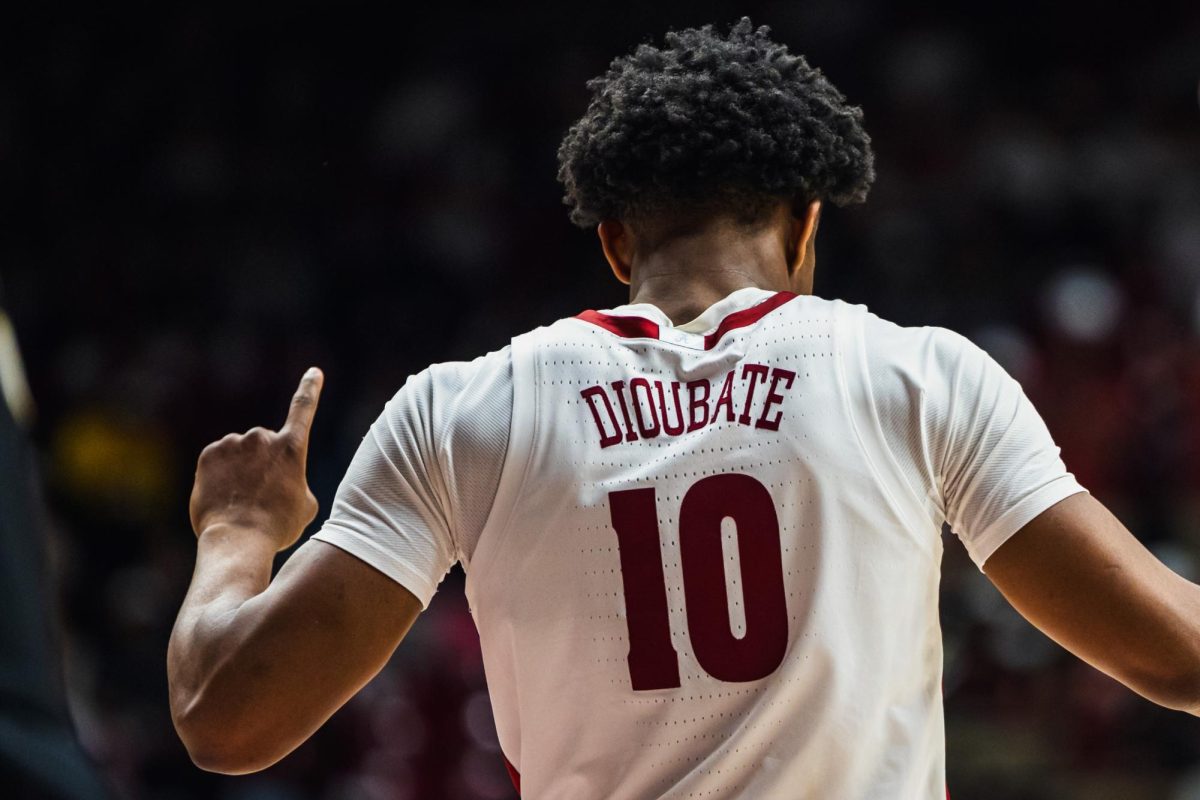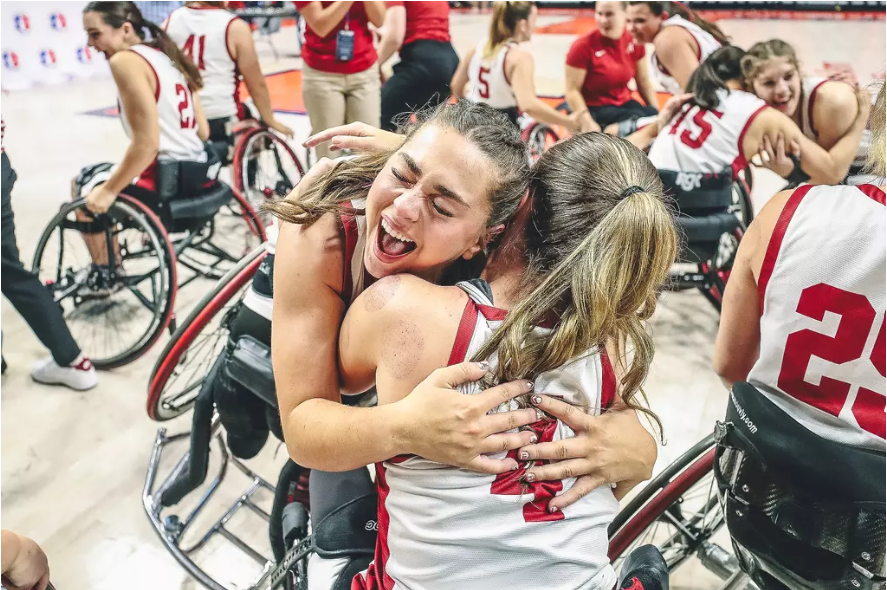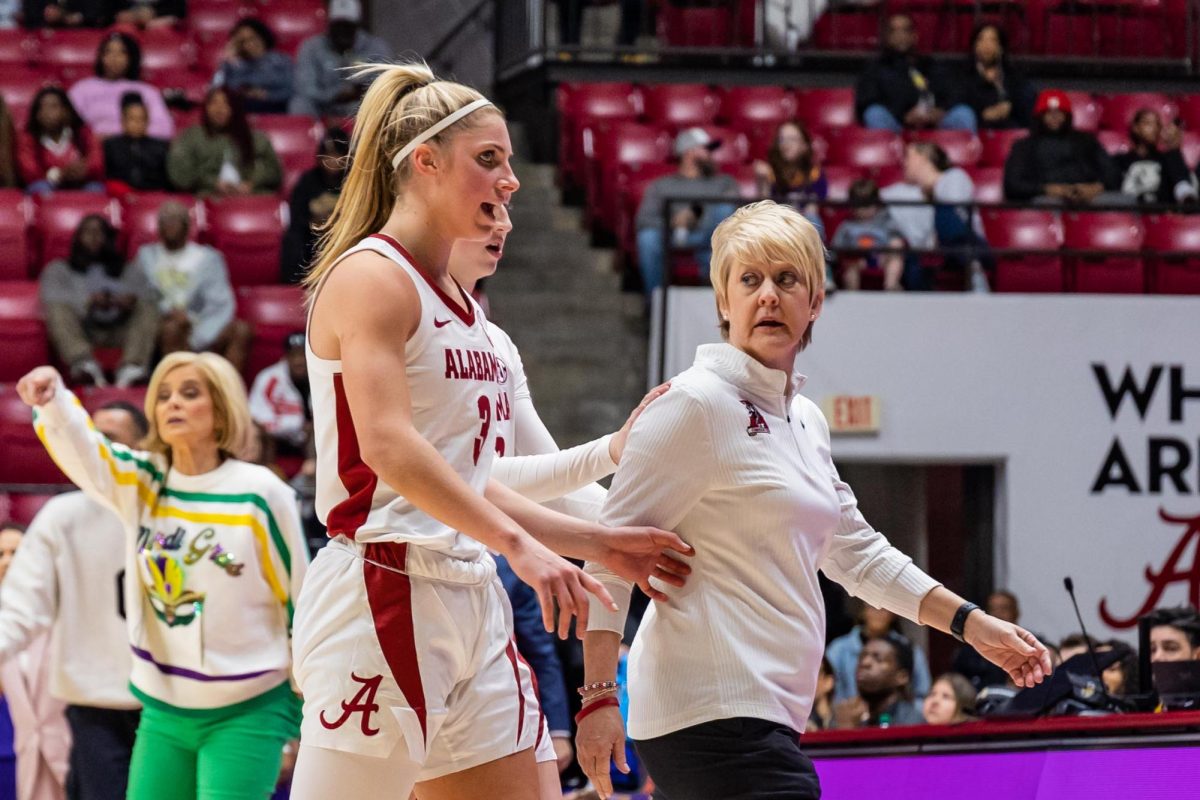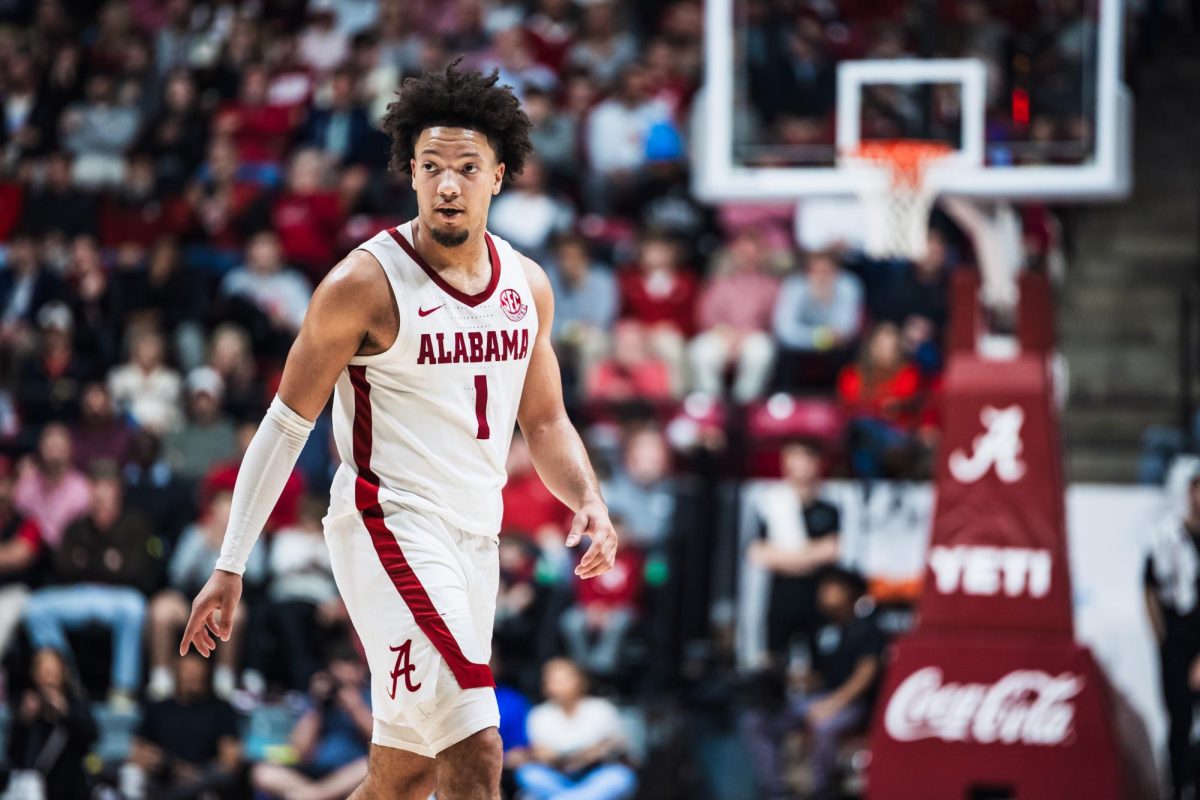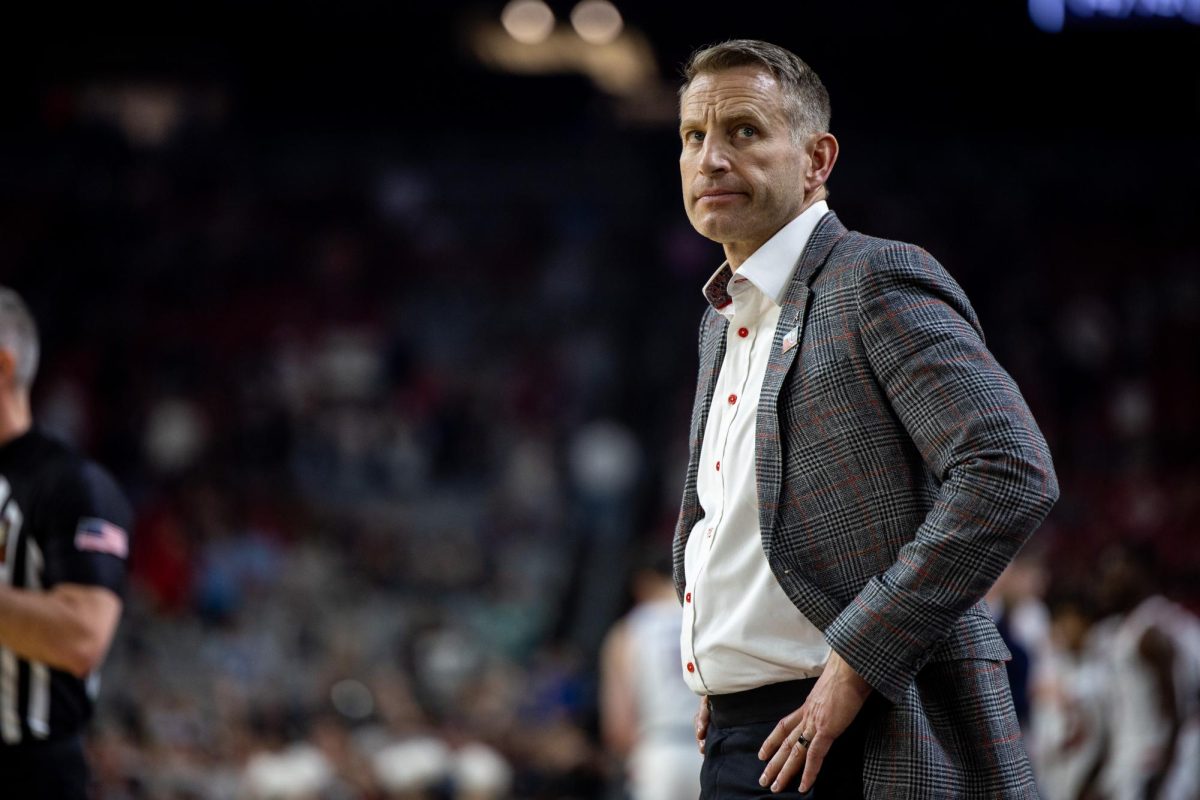Gymnastics head coach Sarah Patterson expected a medical update when she was called to an athletic department meeting about the status of Mal Moore Wednesday afternoon. She raced to the meeting, fearing the worst, but instead received news that would end an era dating back to the late 1970s.
Moore was stepping down from his position as athletic director, a position he’s held since November 1999.
Patterson, who joined the University in 1978, is one of the few people at the University who remembers Mal Moore the football coach.
“I always laughed because there was a time where I said to Mal ‘the only thing we know is that you’re not going anywhere and I’m not going anywhere.’ So today, when I was told that, it’s sad in your heart for Mal,” Patterson said. “All I wish is for him and his family is that he recovers and steps back into a role where he will be very beneficial to the University.”
Patterson and Moore connected on a personal level during the 1990s when Moore’s wife Charlotte developed Alzheimer’s and lived in the same nursing home as Patterson’s father.
“Mal has helped me in a lot of ways,” Patterson said. “He’s the one that drove me to the nursing home when my dad was ill. When I would go visit my dad, I would go see Charlotte because Mal was gone coaching.”
Charlotte’s condition worsened, ultimately forcing Mal to move into an administrative role to be closer to her, Patterson said.
“The situation was difficult, but he handled it like a trooper because that’s who he is,” said Jack Smalley Jr., who played linebacker at the University from 1974-77. “He was a great husband and a wonderful person. He always had a smile on his face. The situation was a lot worse than he ever let on, but he gave his heart and soul to Charlotte.”
Patterson noted Moore’s ability to fundraise and joked about her skills of spending the money he brought in. She called Moore the most gracious man and said there was no one with more love for the University.
“For us, look at our facilities,” Patterson said. “We had a donor give us two checks of $50,000 and the rest of it comes from funds that Mal has raised over the years. I look at the recession and we were a team that was adding 10,000 seats to our stadium. Without the success of the football program, it wouldn’t be possible, but I give him credit for finding coach Saban. To me, his athletic director career will be marked by the national championships he’s won and the hire of Nick Saban.”
That’s when the narrative on Moore was rewritten. The Saban hire pushed all of Alabama’s previous struggles under Moore to the back burner as the Tide churned out winning seasons and, eventually, national championships.
“When we made the announcement that we were making a change, I said that we were going to hire a proven coach that had won championships,” Moore said during a December 2012 interview. “I didn’t think we could try out a coach. I felt it was a very crucial hire for Alabama at that time in our history.”
Former players react to Moore’s decision
Smalley said Moore saved the University from a dark place when he took over.
“He unified the athletic department when he came back,” Smalley said. “At that time, it seemed like we were going in five different directions and no one could figure it out. Everyone had a different idea of what should have been done. Mal looked around, did his homework, set a goal and got things on the same page. Now, everyone wants to have the best athletic department possible, and a large part of the success these last few years has to go to Mal.”
Before he was a national-championship-winning athletic director, he was a national-championship-winning coach. Moore started as a graduate assistant in 1964 and worked his way up to offensive coordinator and quarterbacks coach in 1975, all under Paul “Bear” Bryant.
Smalley said Moore was a brilliant offensive mind during his time on the sideline.
“Mal was the architect of our offense. Coach [Paul “Bear”] Bryant came up with the idea to run the wishbone, but Coach Moore mastered and perfected it,” Smalley said. “Mal was the type of guy who even if he didn’t know what you were talking about, he could figure it out, implement it and it would be polished to a ‘T’ when he got back to you.”
Smalley said Moore had a knack for getting things done and even used unconventional ways to get his points across. He recalled a day during practice in which Moore’s offense struggled against the defense.
“We were at practice one day and we’re wearing these oversized suits to keep us from getting killed. They were supposed to protect us, but they made us look like huge blocking dummies. We were going against the first team offense and they were running a little dive play and just couldn’t get it right; we stuffed them like 15 times. He had coach Bryant watching him from the tower. So Mal walks over to the defense and says ‘Look, each one of you is going to get blocked on this play. We can’t stay out here much longer.’ Sure enough, we were all blocked and it was like the Red Sea parted when the offense scored. Coach Bryant picked up his megaphone and said, ‘Good job offense, Atta boy Mal.’”
Richard Todd, who played quarterback under Moore from 1972-1976, said Moore was a “player’s coach” and a class act on the field.
“He wasn’t one of those coaches that yelled or cursed at players. He was always classy and was a hell of a coach. He was a hands-on coach. Coach Bryant was like the CEO and Mal was the manager there with us every day.”
Todd said Moore’s contributions to the University are historic.
“He’s one of the most important people in Alabama history,” Todd said. “It goes coach Bryant then Mal Moore. He’s done so much for the University and his legacy is impeccable.”
Patterson echoed those sentiments and said she is thankful for Moore’s contributions to her success. Under Moore’s direction, she has won three of her six national championships and has continued to build the gymnastics program into a national juggernaut. She credits Moore’s open door policy as the key to their successful relationship.
“He listens to people,” Patterson said. “You don’t always agree with the decision your boss makes, but I always felt there was an open door for me to share my feelings and for that I’m appreciative. It’s difficult for me to think that I’m going to have another boss.”
Despite his age and administrative position, Moore made it a priority to get to know the athletes he came in contact with, said former Crimson Tide standout Damion Square.
“He always interacted with us,” Square said. “When I would see him in the parking lot leaving the facility, he would always take the time and ask me how my day was or ask me how my knee was doing. I’m one of many players he had to deal with at the University, and for him to know my personal problems and struggles with the injuries just lets you know what type of guy he was.”
Leading in today’s Crimson White:
Engineering students prepare for robotics competition



